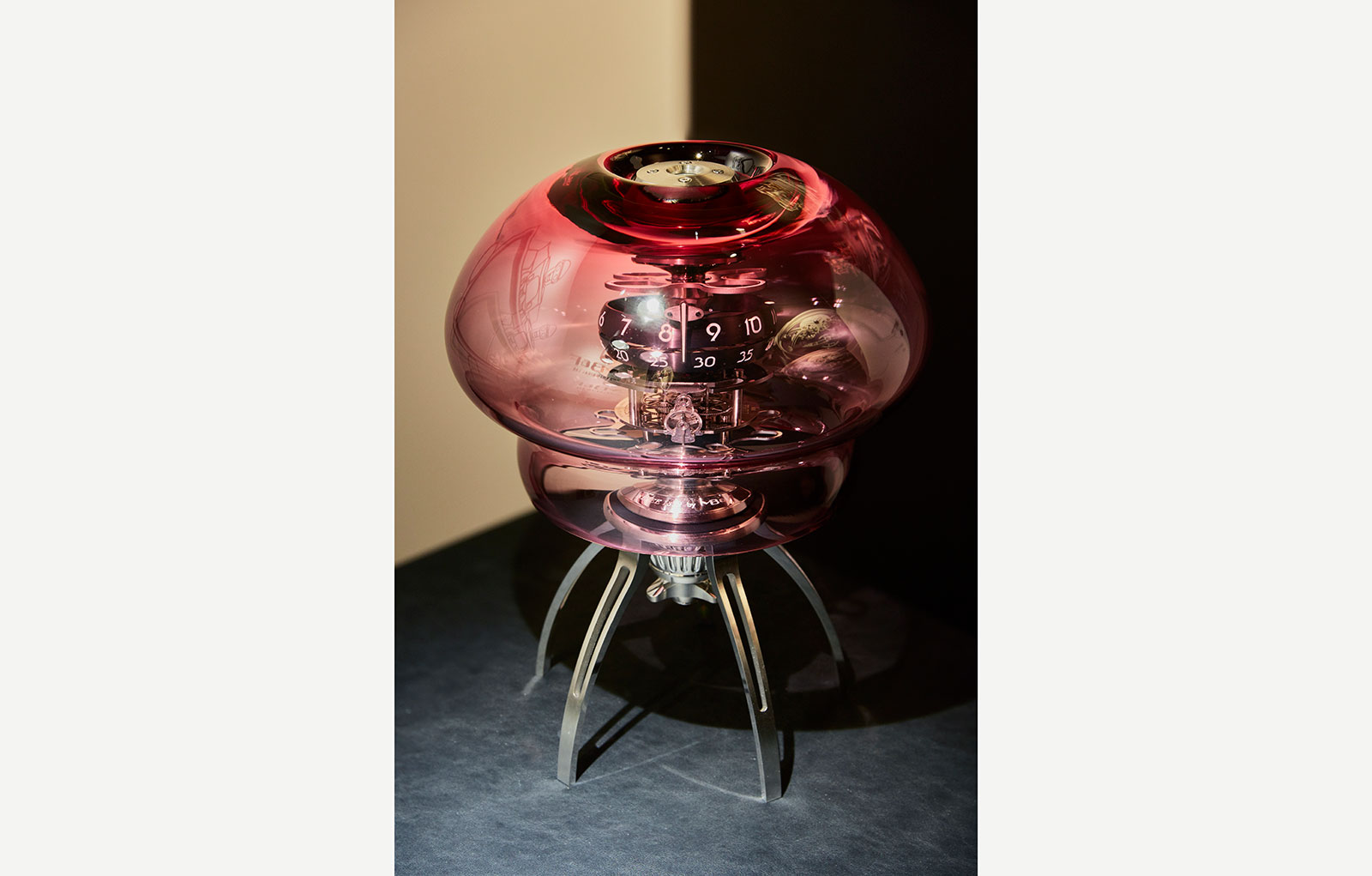A Look at the MB&F Medusa Clock (Which is Actually a Jellyfish)
And not a Greek monster.
After 10 collaborations, it’s safe to say that the partnership between independent darling MB&F and high-end clockmaker L’Epée 1839 is anything but characterless. From robots to giant spiders, the imaginative clocks have always been built more as artistic ornaments with functions as a bonus, rather than functional objects with a touch of art.
The 10th collaboration between the two brands, unveiled at SIHH earlier this year, is the perfect example of the lighthearted objet d’art ethos that both houses share. Named after the species that includes the jellyfish, the Medusa is a dual-configuration clock with a distinct, coloured glass case that can be hung from a ceiling or set on a desk – though it looks more like a proper jellyfish when suspended from the ceiling.
In its desk clock configuration, the Medusa is similar in aesthetic to the Octopod, an earlier clock that made its debut 2017. But the Octopod was decidedly more steampunk and sci-fi, in contrast to the Medusa, that is more fluidly artistic in style.
While the Octopod’s outer frame was made with transparent glass, the Medusa’s heart sits in hand-blown Murano glass, with three colour options – pink (as pictured above), blue, or green.
Murano, an island off Venice, is known for its rich history in the art of glassmaking. According to the brands, the complexity of the case meant that out of the 40 local glass specialists L’Epée 1839 approached, only one glassblower was able to accomplish the task.
Up close, the pink variant of the clock is eerily reminiscent of the mauve stinger, a jellyfish found in warm waters across the world. The curves of the glass are an excellent representation of the softness of jellyfish, despite the rigidity of the material itself.
Each glass case has a diameter of 250mm, or 25cm. In its desktop configuration, the height of the Medusa is 32.3cm tall but 28.6cmm tall if it is hung. The extra height comes from the eight tentacles, also made of Murano glass, that replaces the standing base in stainless steel and brass.
Because of the structure of the glass – gripping the delicate and slippery glass body is ill advised – the movement for the Medusa was designed to be operated with just one hand. The propeller at the bottom of the movement both winds the clock, as well as sets the time.
The movement boasts seven days of power reserve and beats at 2.5Hz. Time is told in a similar fashion to the Destination Moon 8-Day Rocket Clock, by way of two stacked rotating rings, the top showing the hours, and the bottom showing the minutes.
While the Medusa falls very much in line with the rest of L’Epée 1839 and MB&F’s quirky assembly of clocks, it is different enough to add variety to the admittedly wide line-up of clocks.
The Medusa in hanging configuration
Price and availability
The MB&F Medusa clocks are available with green (ref. 73.6000/134), blue (ref. 73.6000/144) or pink (ref. 73.6000/164). Each clock is limited to 50 pieces, and priced at 25,500 Swiss francs, or about US$25,300.
Back to top.